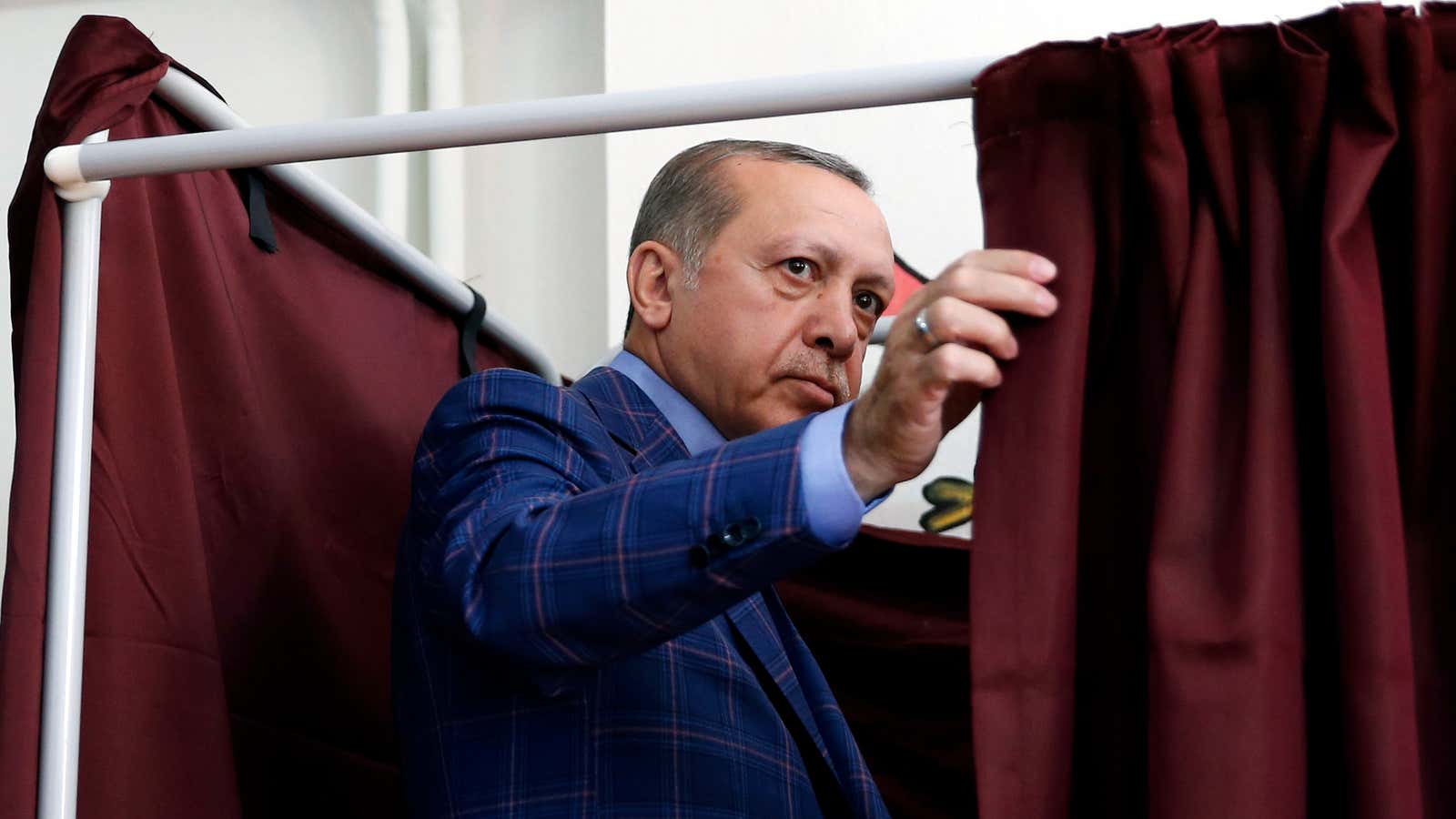Turkish president Recep Tayyip Erdogan says he has triumphed in a radical constitutional referendum that will consolidate the government under his control.
The BBC reports that with nearly all results counted, “Yes” has tallied slightly more than 51% vote, with the narrow mandate to the winning side underscoring how divisive the proposals and decision process have become. The Turkish opposition says it will demand a recount of 60% of the vote, according to Reuters.
Erdogan, who was almost deposed in a military coup last year, has been criticized for restricting the free press during the election, and outspoken opponents of the constitutional changes have been subject to politically-motivated attacks.
The proposals under consideration would eliminate the office of the Prime Minister, while giving the president power to appoint senior officials, make budgetary decisions and issue emergency decrees. The president can be elected for two five-year terms, with the possibility of extending to a third with the support of parliament.
Erdogan became the Prime Minister of Turkey in 2003, and with a “yes” vote his rule could extend through 2029. After becoming president, previously a symbolic role, in 2014, he has pushed to gain growing powers. His supporters say this is necessary to fight terror threats to the country, including Islamists and Kurdish separatists.
Analysts say that the move amounts to creeping authoritarianism in Turkey, a state at the nexus of geopolitical conflicts driving instability around the world. Nestled between Europe and the Middle East, Turkey has been a crossroads for refugee migration caused by the Syrian civil war just across its border, with troubles in the region inflaming local concerns.
Critics say that Erdogan is pushing back against legitimate political opposition as well as extremist groups. A crackdown on the press has made Turkey the world’s leading jailer of journalists, a title it took from China.
Turkey is a member of NATO, the international security alliance between the United States and Europe, and was once considered a potential member of the European Union. But, during the campaign to adopt the constitutional changes, Erdogan angered European diplomats with his harsh criticism after some countries with large Turkish populations, including the Netherlands, barred expatriate Turks from holding rallies in support of the measure.
He has also been critical of the United States for refusing to extradite exiled Turkish cleric Fethullah Gulen, the leader of a social movement seen as linked to the coup against Erdogan last year.
